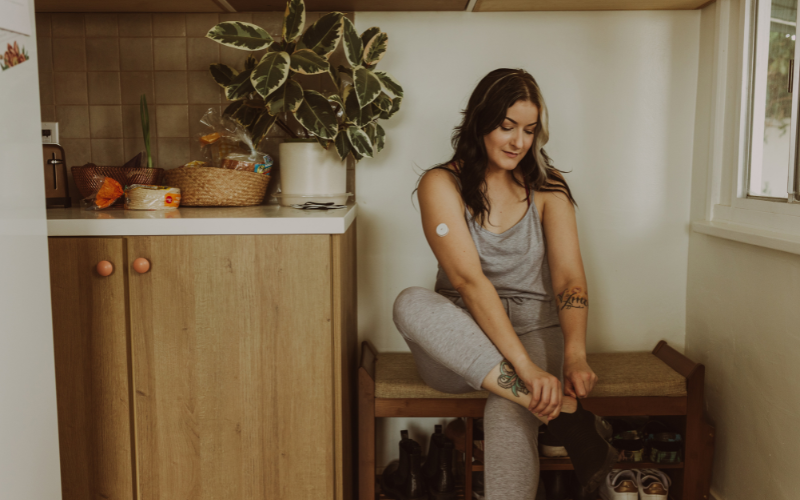Too Little Sleep Might Raise a Woman’s Odds for Diabetes
Original Article | Dennis Thompson, Published in HealthDay Magazine
Key Takeaways
- Women who get poor sleep might have an increased risk of diabetes
- Getting just 90 minutes less sleep increased insulin resistance in women
- Researchers will look at whether better sleep helps control diabetes
TUESDAY, Nov. 14, 2023 (HealthDay News) — Women who don’t get enough sleep might have an increased risk of diabetes, an effect even more pronounced in postmenopausal females, a new study finds.
Shortening sleep by just 90 minutes increased insulin resistance in women used to getting adequate sleep, researchers at Columbia University.
The findings are the first to show that even a mild sleep deficit maintained for six weeks can raise the risk of diabetes, researchers said.
“Throughout their lifespan, women face many changes in their sleep habits due to childbearing, child-rearing and menopause,” said lead researcher Marie-Pierre St-Onge, director of the Center of Excellence for Sleep and Circadian Research at Columbia University in New York City. “And more women than men have the perception they aren’t getting enough sleep.”

For this study, St-Onge and her colleagues enrolled 38 healthy women, 11 of whom had gone through menopause.
All of the women routinely slept at least seven hours each night. The recommended amount of sleep for optimal health is between seven and nine hours, researchers said, but about a third of Americans get less sleep than that.
Each of the women were asked to participate in two different phases of the study, in random order.
Women were asked to maintain their regular adequate sleep in one phase, but in the other phase they were asked to delay their bedtime by an hour and a half, shortening their total sleep to around six hours. Each phase lasted six weeks.
Curtailing sleep by 90 minutes for six weeks increased fasting insulin levels by more than 12% overall, and by 15% among premenopausal women.
Insulin resistance increased by nearly 15% overall, and by more than 20% among postmenopausal women.
Average blood sugar levels remained stable for all participants throughout the study, but researchers said the changes in insulin resistance could cause them to start rising in the long-term.
Although increased belly fat is a key driver of insulin resistance, the researchers found that the effects of sleep loss on insulin resistance were not linked to any increases in fat.
“The fact that we saw these results independent of any changes in body fat, which is a known risk factor for type 2 diabetes, speaks to the impact of mild sleep reduction on insulin-producing cells and metabolism,” St-Onge said.
Researchers will next investigate whether better sleep can improve blood sugar control and glucose metabolism.
The study was published Nov. 13 in the journal Diabetes Care.
More information
The U.S. Centers for Disease Control and Prevention has more about sleep and diabetes.
SOURCE: Columbia University, news release, Nov. 13, 2023

